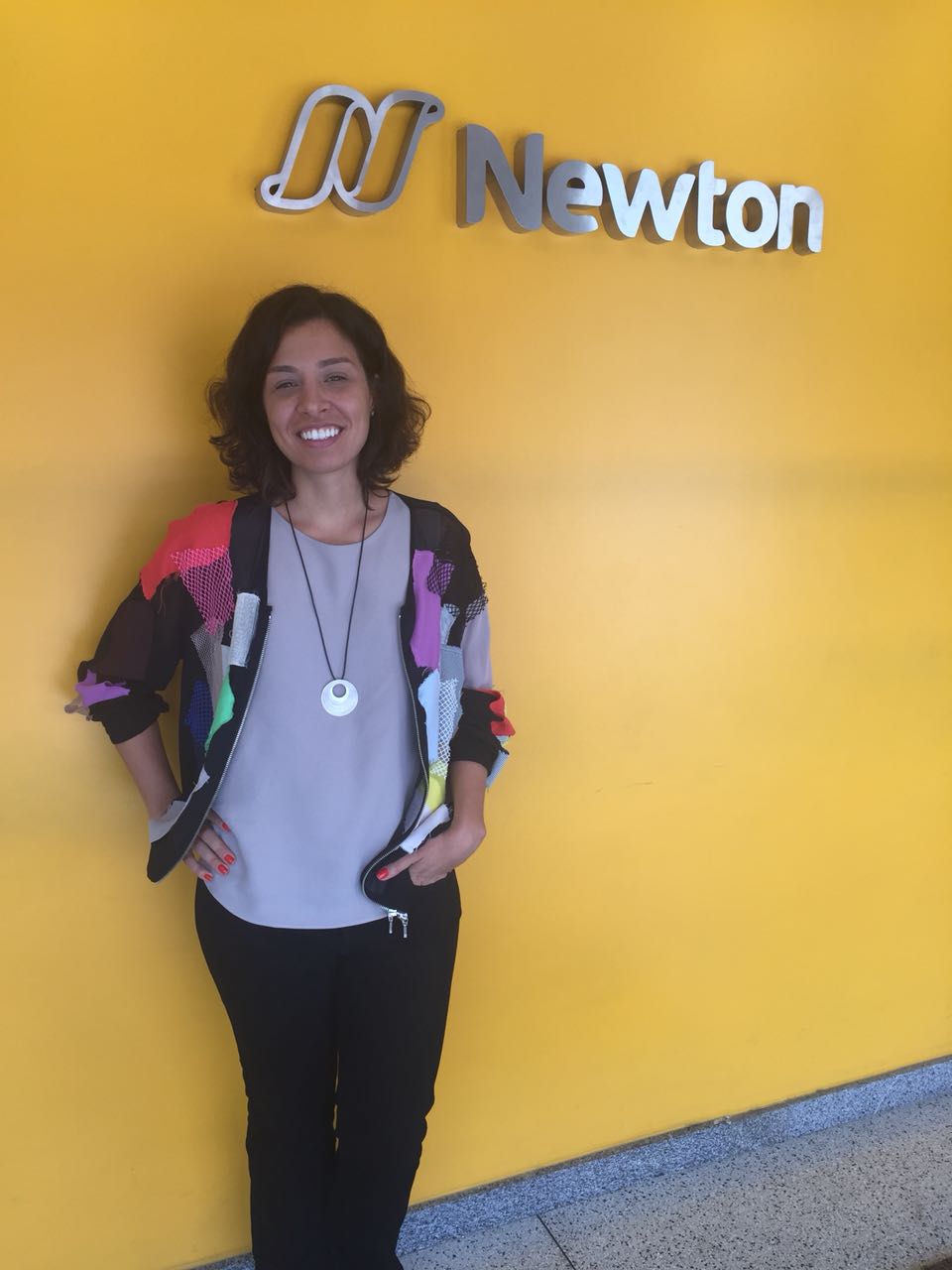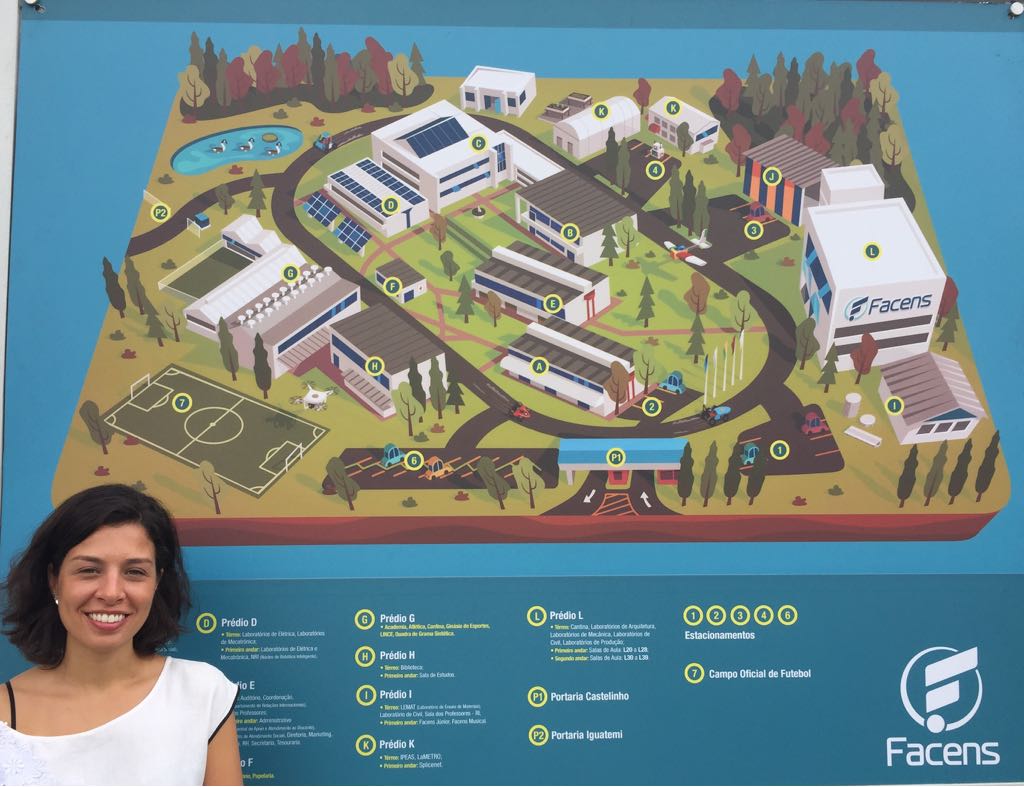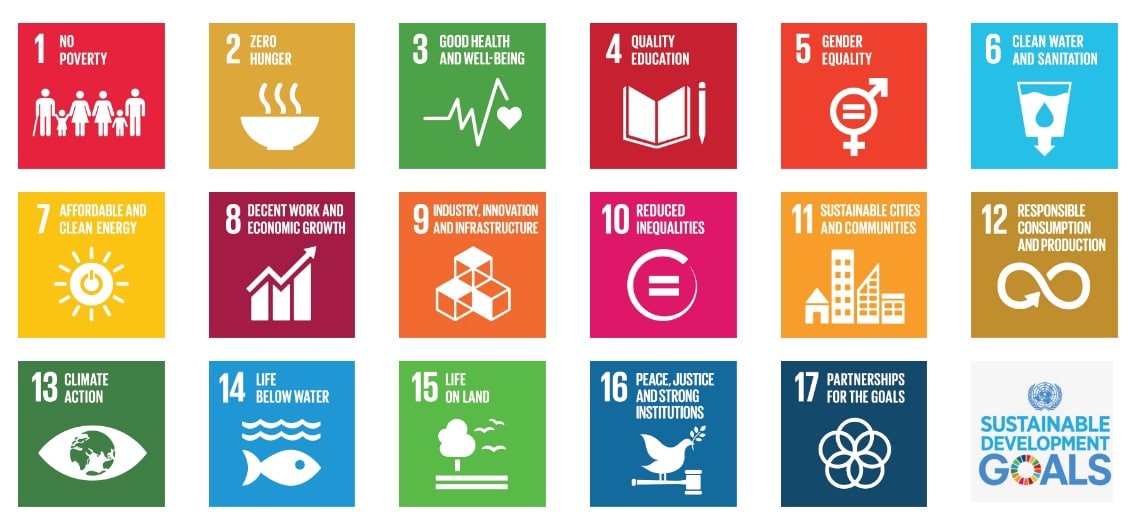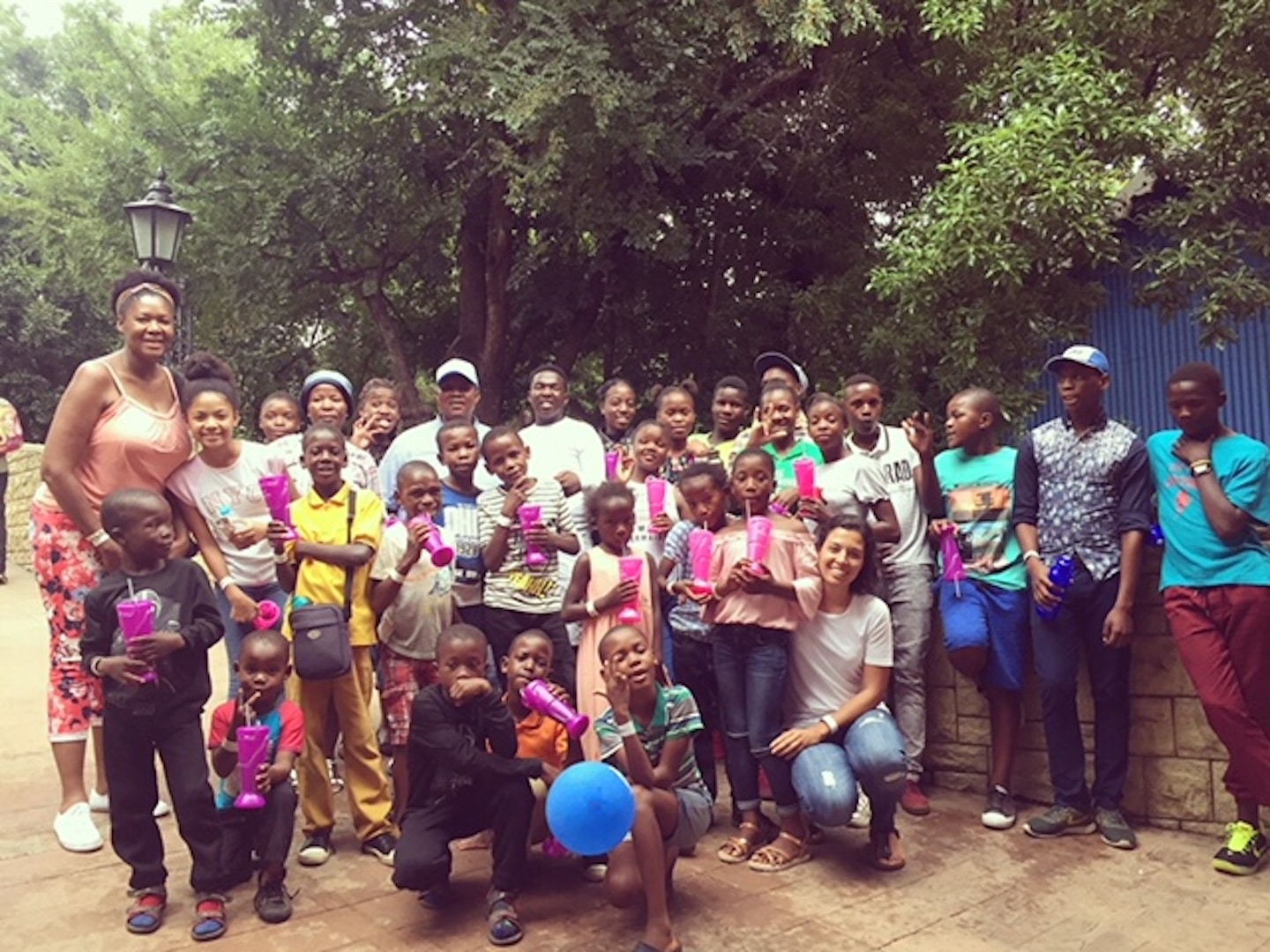
Thais Barros Beldi at Newton Paiva University.
The Facens University, located in Sorocaba on the countryside of São Paulo, focuses on engineering and architecture; Newton Paiva University in Belo Horizonte, in the state Minas Gerais teaches engineering, business communications, law, and health care education. Both Universities are implementing project-based learning to prepare the 16,000 students for their and Brazil’s future. This includes working with the United Nation’s (UN) Sustainable Development Goals (SDGs). impactmania spoke with Thais Barros Beldi whose family is training the next-generation of impact makers. She spoke about education in Brazil, coming around to work for the Family Foundation, and how decisions are made between her and her two brothers.
BY PAKSY PLACKIS-CHENG
What is the core mission of the Universities apart from educating the next generation?
We are concerned about quality education. We are providing this education without the higher price. In Brazil, you have well recognized organizations; those schools are hard to get in and are really expensive.
We also look for hands-on projects for the students. We offer laboratories and innovation centers where the students have the possibilities to put their projects to practice and learn by doing.
Give me an example of the project-based, hands-on learning that is happening in the centers?
In engineering, students build race cars, like a Formula One race car, for competitions. We have a really famous competition, which is SAE. The students participate in our University’s Innovations Center where they build their own projects to compete. Our students have won many awards. There is also an electric car competition and robotics competitions — sumo [wrestling] competitions with robots. There are different ways for students to learn while putting ideas in practice. They can look at energy, water, and the Internet of Things. If the students have an idea, they go to the laboratory, discuss their project, and maybe start creating.
How do you manage to build this Center? You mentioned that education has to stay accessible, from a tuition perspective.
Currently, we’re investing by ourselves. The innovation centers are looking for ways to be more sustainable. We are thinking of offering services to others beyond it being a tool for the students. Since we are generating idea innovation and knowledge from what we’re doing with the research and prototypes, we can promote this to other universities, organizations, and companies.
What in general needs to happen in Brazil from an education standpoint?
The Minister of Education is changing the curriculum of elementary schools and high schools. We have a type of education that doesn’t work, because the students memorize, they don’t learn. Changes were discussed with professors in the community and a lot of NGOs and organizations that are involved with education.
People that go to public schools in Brazil usually don’t receive a good education. It is in part because professors in public schools are not well paid and don’t receive good training. Then we have corruptions in Brazil that affect the public education’s infrastructure.
A change that is happening here is how to implement active methodologies inside of the classroom; better training for professors and building better infrastructure for schools — offering Internet-access and tablets. Universities are discussing how to train professors to be in the 21st century. How can you use active methodologies to engage the students with the professors as facilitators?

Thais Barros Beldi in front of the Facens University Campus map.
Give me a specific example of something that you’ve implemented at the Universities that allowed the professors to change their approach to teaching.
We are giving these capacity building programs for professors, showing them an active methodology; how to use design thinking, and give students a case to work on before they meet in class. We have classrooms where you have blackboards all around for the students to stand up and write.
We are aligning the curriculum with the Innovation Centers. For example, we created this Entrepreneurship Center. We have four pillars you have to follow: culture, education, hands-on abilities, and communities (ecosystem). This Entrepreneurship Center has its own programs; the curriculum brings all the aspects together that we are discussing, to prepare the students to have a lifelong entrepreneurial attitude. Another new change is in engineering, because in engineering classes you often don’t discuss startup and management. We are also discussing ethics in class, bringing socioeconomic and environmental issues to light, and discussing UN’s SDGs [United Nations’ Sustainable Development Goals].

UN’s SDGs: In 2015, countries adopted a set of goals to end poverty, protect the planet, and ensure prosperity for all as part of a new sustainable development agenda. Each goal has specific targets to be achieved over the next 15 years.
What do you think students need to learn to prepare them for the future?
This is my personal opinion: they need to be aware of what is happening around them. Of course, when you are a student, your biggest problems are passing the tests. We decided to be aligned with UN’s SDGs. It is to connect students to problems much larger than their own. What can you do in your field? What is happening in the world — not only in your neighborhood and city? You will be better prepared for the labor markets with an open mind.
While you are teaching students to be good citizens, what have you learned yourself while helping expand the family business of education?
I realized what a powerful social tool education is to change lives. And that everyone can use its connection and knowledge to be the change we want to see in our world. In this sense, I could use my connections and willingness to help others to encourage the creation of projects and programs inside of our Universities. And with the Social Innovation Lab involving more people in my ideas. We have an incredible opportunity to explore a new way of education.
How did your personal mission and the Family Foundation’s objectives align so well?
I have always been involved in social causes — as a volunteer in NGOs or being part of a youth group devoted to social actions.
When my father had the idea to create the Family Foundation, I took the challenge to start it along with a staff member. In 2012, we established the Family Foundation, Instituto Alexandre e Heloisa Beldi, in the region of Sorocaba, a city located in the countryside of São Paulo. After analyzing the local need, we decided on using education as a tool to support regional NGOs to become more sustainable. We piloted our first capacity building program with 11 NGOs. Until 2016, we actually supported more than 40 NGOs. The Foundation also initiated the civic Giving Tuesday Campaign in Sorocaba, called Doa Sorocaba, to promote and improve the culture of giving. All this has been well aligned with my beliefs and personal mission; the Foundation is one way to give back to society for all the blessings we have been receiving.
How are you going to maximize this tool: education for social and economic impact?
Education is a powerful tool for change in Brazil. We have to help the students and professors with knowledge to create and innovate. We have been discussing with the UN’s office in Brazil on how we can improve what we are doing. We all need to learn more about the SDGs and how to implement them and how we measure the changes made by 2030.
The employability rate of our students has been more than 90 percent over the last 10 years, because we are providing hands-on projects. But now, we need to give them this awareness of what is happening in the world and how they can use their abilities and network to improve the societal problems that we are facing.

Thais and her family also support in education outside of Brazil. One of their recent partnerships is with the NGO Ikusasa Lethu Child and Youth Project and Synergos Institute, to support orphans and vulnerable children, in Devland Soweto, Johannesburg, Africa.
We always ask our interviewees who’s had an impact on their professional DNA? Your family has played a big part. Who has made you the social entrepreneur that you are today?
My father. He’s one of the people who showed me the value of working and how to continue the work that my grandfather created. I found out how to integrate my social side with the family business side. My father taught me how to think systematically about how the family business could bridge different people and communities.
How is it working with your brothers?
It’s not easy! [Laughs.] But it’s good — we have different abilities that are complementary. We are also working in different areas. I always joke with my brothers, because I get to look after the fun stuff: what is new, what is creative, and social innovation. My brothers look at the numbers, and what is happening with professors, and the marketing side of the Universities.
What happens when a decision needs to be made? You take a vote?
Yeah, we have to take a vote. The majority wins. There are a lot of discussions during the dinner and sometimes the rest of the evening and into the night.
When you were little kids, did you think that you would be working together?
I didn’t want to work with my family when I was a teenager. When I graduated, I went to live in Boston for a while. I came back, in 2008, at the beginning of the [financial] crisis. I started working in the family office, taking care of the financials and corporate governance. The economic crisis and working for the family taught me things I would not have learned if I had been an employee anywhere else.
I had the opportunity to work with my grandfather a year before he passed away. It was really different to look at things from his, and my father’s, perspectives. It would be really sad if we don’t continue what they created, but it’s challenging, because you have differences between generations and different thinking. And so, there are a lot of decisions to be made and a lot of responsibilities. At the same time, I am really grateful to be part of something that started before us. We have a responsibility of taking his work forward and making it even better.
The faculty and students of Newton Paiva University and impactmania co-produced a video story about the first commercial urban farm in Latin America.

